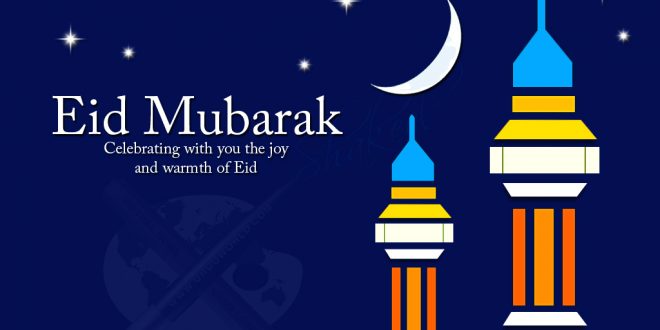Happy, safe Sallah
Today, Friday, July 31, 2020, is Eid el-Kabir, or Big Sallah in Nigeria. This followed the announcement by the Sultanate Council which declared today as the 10th day of Dhul-Hijjah 1441 after Hijrah. The Sultan of Sokoto and President General of the Nigeria Supreme Council for Islamic Affairs (NSCIA), Alhaji Muhammadu Saad Abubakar, however, advised […]

Today, Friday, July 31, 2020, is Eid el-Kabir, or Big Sallah in Nigeria. This followed the announcement by the Sultanate Council which declared today as the 10th day of Dhul-Hijjah 1441 after Hijrah.
The Sultan of Sokoto and President General of the Nigeria Supreme Council for Islamic Affairs (NSCIA), Alhaji Muhammadu Saad Abubakar, however, advised all district heads and imams in Sokoto and other states of the federation to observe the Eid prayers in their respective Juma’at mosques, not at the usual Eid grounds in view of the health emergency occasioned by the COVID-19 pandemic.
- Sallah: Buhari issues fresh caution on COVID-19
- Sallah eve: ‘Gunmen abduct travellers on Abuja-Kaduna Highway’
He made the call in a statement signed by Professor Sambo Wali Junaidu, the Chairman of the Advisory Committee on Religious Affairs in the Sultanate Council.
The Secretary to the Government of the Federation (SGF) and Chairman of the Presidential Committee on COVID-19, Boss Mustapha, had during the daily media briefing held on Thursday, July 23, 2020, encouraged state governments to ban the 2020 Eid el-Kabir festivities.
The Minister of Health, Osagie Ehanire, also cautioned against Eid gatherings, saying ,“All over the world, mass gatherings have been linked with mass infections and casualties in other countries,” adding that, “Since the risk of crowding cannot be ruled out in places of worship and poses a serious hazard for COVID-19 transmission, it is very wise that persons over 60 years, the obese and those in treatment for hypertension, diabetes, cancer, HIV, among others, or have had a transplant, should stay and pray at home.”
Kano, Jigawa, Plateau, Osun and Kwara states have all banned Sallah festivities. Addressing journalists in Ilorin, the Kwara State Deputy Governor and Chairman of the state Technical Committee on COVID- 19, Kayode Alabi, said government, in consultation with the Council of Ulama, under His Royal Highness, the Emir of Ilorin, Dr. Ibrahim Sulu-Gambari, decided to cancel congregational Eid prayers for 2020 across the state.
He said the cancellation became necessary given the huge numbers that were expected to gather for Eid prayers and the possibility of such gatherings leading to a spike in cases and potential deaths.
Governor Abubakar Sani Bello of Niger State similarly cancelled all Eid el-Kabir festivities across all the eight emirates in the state, but granted permission for the conduct of Eid congregational prayers in Juma’at mosques across the state.
He said such would be done under strict compliance with COVID-19 safety protocols.
The FCT Minister, Malam Muhammad Musa Bello, is also restricting today’s Eid prayers to mosque areas within the territory.
Unlike Kwara where Muslims are observing the Eid in their homes and Niger where the Eid prayers are holding in mosques, Muslims in Kaduna State are observing their Eid prayers at Eid praying grounds.
This brings to third, after Kwara and Niger, the different responses by states to curtail the spread of the virus during the Eid period.
Governor Nasir el-Rufai of Kaduna said, “We will not allow Eid to take place in the mosques because there is a high chance of congestion in the mosques, and this could lead to the spread of COVID-9.”
He, however, advised Muslims above 50 years and those with underlying illnesses to remain at home. Hence the Kaduna State option seems a safer response if non-pharmaceutical measures would be observed by worshipers.
Therefore, we advise Muslims in states where the Eid prayers are permitted to be observed in mosques to strictly adhere to social distancing and other rules of personal hygiene, including the use of nose masks and hand sanitisers.
Exchange of visits during the festive period of Sallah should be minimised. Recreation centres should also be avoided.
Instead of paying physical visits to relations, few minutes of phone calls would suffice. It is important to stay safe to celebrate the Sallah.
As Muslims extend their generous hands of alms, including Sallah meat, to their neighbours, they are encouraged to be mindful of all COVID-19 protocols.
As they use this season to thank God for all His mercies, they are exhorted to seek God’s intervention not only during the COVID-19 pandemic, but also in bringing Nigeria’s security challenges to a speedy end.
We wish all Nigerians a happy, safe Sallah celebration.
